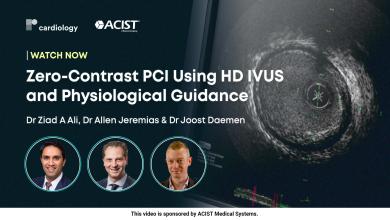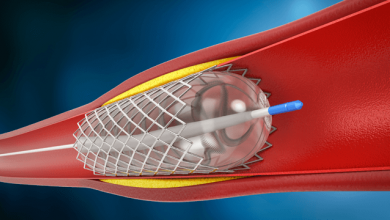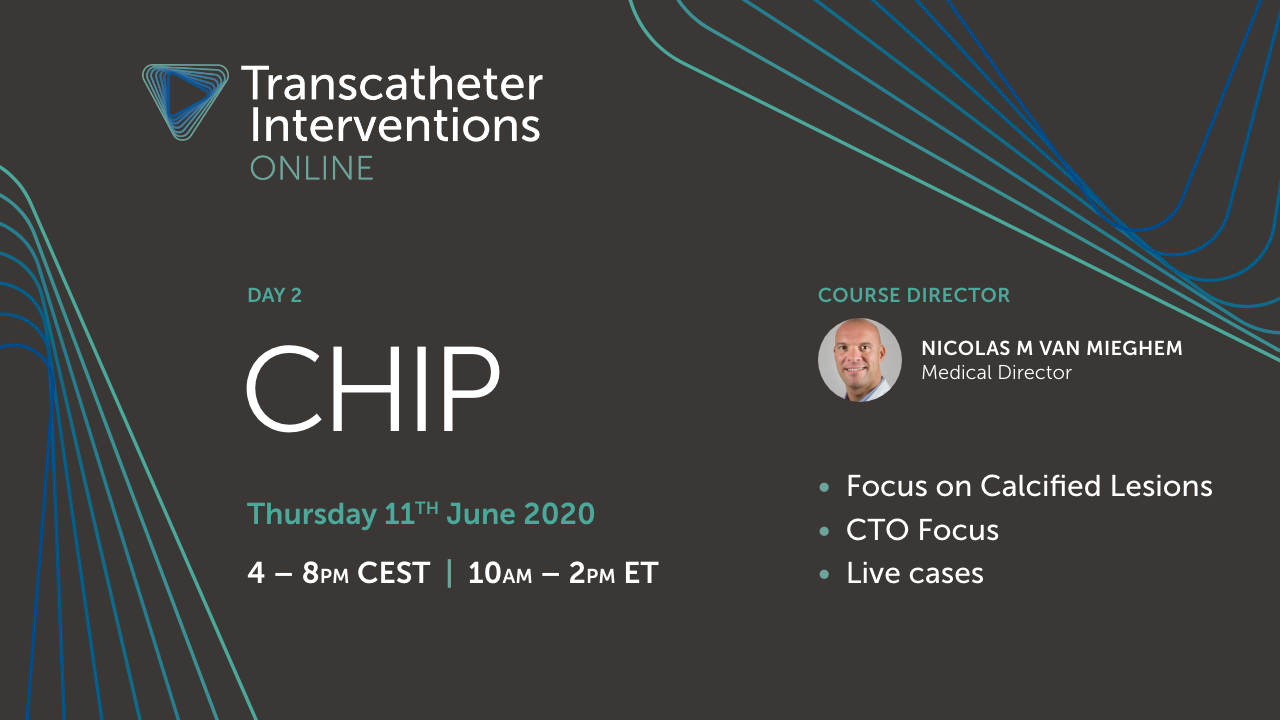Search results
Author(s):
Roberto Diletti
,
Nicolas M Van Mieghem
Added:
3 years ago
Since Andreas Gruentzig presented his pioneering work in 1977, 'three revolutions' in percutaneous coronary interventions (PCI) have characterised the field of interventional cardiology. Plain old balloon angioplasty (POBA) was refined by the introduction of bare metal stenting (BMS) (second revolution) to address the issue of acute vessel recoil and unacceptably high rates of restenosis. Drug…
View more
Author(s):
Joost Daemen
,
Allen Jeremias
,
Ziad A Ali
Added:
10 months ago
Join us for an informative video that explores the innovative approach of performing zero-contrast percutaneous coronary intervention (PCI) using advanced medical technologies and best practices. In recent years, contrast supply shortages and the need for improved patient outcomes have presented significant challenges in care delivery. In this video, our esteemed faculty will demonstrate the…
View more
Author(s):
Ronan Ali
,
Adam B Greenbaum
,
Aaron D Kugelmass
Added:
3 years ago
Abstract
The basic equipment involved in percutaneous coronary interventions - guiding catheters, guide wires and dilation catheters (balloons) - have undergone significant evolution which has allowed for improvements in procedural success and safety. The coronary interventionalist should possess a thorough working knowledge of the available equipment and the ability to select specific equipment…
View more
Author(s):
Eberhard Grube
,
Lutz Buellesfeld
Added:
3 years ago
Despite major advances in catheter-based therapy and adjunctive pharmacology, percutaneous revascularisation of diseased saphenous vein bypass grafts (SVGs) remains a critical challenge for the interventional cardiologist. Degeneration and occlusion of vein grafts is a common problem with an incidence of 15% to 30% in year one after surgery, 1% to 2% annual occlusion rates in years one to six and…
View more
Author(s):
Tim A Fischell
Added:
3 years ago
Coronary artery stenting has evolved substantially since the first use of coronary stenting as an adjunct to balloon angioplasty in the early 1990s. The performance (and particularly the deliverability) of coronary stents has improved such that coronary stenting is now the primary mode of revascularisation for percutaneous coronary interventions in more than 95% of cases.
Although stent delivery…
View more
Author(s):
Olivier F Bertrand
,
Tift Mann
Added:
3 years ago
The highlights of the last decade in interventional cardiology have been the introduction of drug-eluting stents and an overall simplification of percutaneous coronary interventional procedures from a technological standpoint. Indeed, most interventions currently consist of either direct stenting or pre-dilatation followed by stent implantation; the use of rotational atherectomy and other niche…
View more
Foreword
Author(s):
Horst Sievert
,
Jennifer Franke
Added:
3 years ago
Article
Author(s):
Nicolas M Van Mieghem
,
Kendra J Grubb
,
David Hildick-Smith
,
et al
Start date:
Jun 11, 2020
The programme aims to educate interventionalists and allied healthcare professionals on the practical implications of the latest clinical data, device selection and procedural strategies impacting optimum patient care. To further illustrate this, the event will feature a number of practical demonstrations in the form of live cases broadcast from cardiovascular centres of excellence globally,…
View more
Author(s):
Christoph Hehrlein
Added:
3 years ago
Percutaneous coronary interventions (PCI) for the treatment of coronary artery obstructions are associated with a high rate of restenosis (20–57%) in the first six months after the procedure.1,2 Metallic stenting has significantly improved short-term procedural outcomes and reduced restenosis rates in patients undergoing PCI.3,4 The surgical stent deployment procedure initially involves the…
View more
Author(s):
Volkmar Falk
Added:
3 years ago










 « First
« First